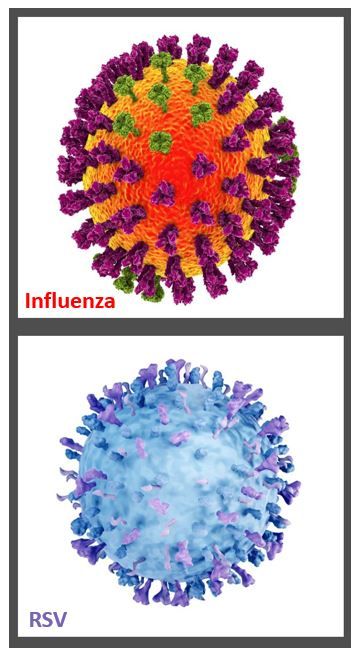- Clinical Technology
- Adult Immunization
- Hepatology
- Pediatric Immunization
- Screening
- Psychiatry
- Allergy
- Women's Health
- Cardiology
- Pediatrics
- Dermatology
- Endocrinology
- Pain Management
- Gastroenterology
- Infectious Disease
- Obesity Medicine
- Rheumatology
- Nephrology
- Neurology
- Pulmonology
Coadministration of RSV, Influenza Vaccines Found Safe and Effective in New Study
The coadministration of RSVpreF and seasonal influenza vaccine was found to generate robust immune responses in older adults, reported authors of new study.

The coadministration of bivalent respiratory syncytial virus (RSV) prefusion F protein−based vaccine (RSVpreF) and seasonal influenza vaccine was found to generate robust immune responses and was safe and well-tolerated in older adults, according to new research.
“With the typical seasonality of both RSV and influenza, it is possible that RSVpreF vaccine may be given at the same time as seasonal influenza vaccine,” wrote study authors in the journal Clinical Infectious Diseases. “Coadministration of these 2 seasonal vaccines would eliminate the need for an additional visit to a healthcare provider for individuals receiving both vaccines; this would likely be convenient for patients and healthcare providers and, in turn, potentially increase vaccination rates.”
To further understand whether the influenza vaccine and RSVpreF vaccine can be safely coadministered and whether coadministration affects immune responses, investigators conducted a phase 3 double-blind, placebo-controlled study in healthy adults aged ≥65 years in Australia.
Participants were randomly assigned 1:1 to receive both RSVpreF and the seasonal inactivated influenza vaccine (SIIV) at visit 1 and placebo at visit 2 (1 month later), or, in the sequential administration group, to receive SIIV plus placebo at visit 1 and RSVpreF alone at visit 2, according to the study. Researchers assessed for safety and tolerability and collected data on reactogenicity and adverse events.
Investigators conducted the study between April 13 and October 12, 2022, “to coincide with the typical Southern Hemisphere RSV and influenza seasons,” they wrote.
FINDINGS
In total, 1399 participants (mean age, 70 years; 55% women; 95% White) were randomly assigned to receive vaccinations.
According to the results, local reactions and systemic events were mostly mild or moderate when when RSVpreF was coadministered with SIIV or given alone, and no vaccine-related serious adverse events were reported.
The most common local reaction was injection site pain, which was reported in 11.4%‒12.4% of patients after receiving RSVpreF. The most commonly reported systemic event was fatigue, which was reported in 30% of participants who received RSVpreF and SIIV, 27.1% of patients who received placebo and SIIV, 19.1% of patients who received RSVpreF alone, and 17.6% who received placebo alone.
Investigators also observed that immune responses to both RSVpreF and SIIV were noninferior when the vaccines were coadministered compared with when the vaccines were given 1 month apart.
Specifically, geometric mean ratios among the 2 major cocirculating antigenic subgroups (RSV-A and RSV-B) were 0.86 for RSV-A and 0.85 for RSV-B neutralizing titers at 1 month after RSVpreF administration and 0.77 to 0.9 for strain-specific hemagglutination inhibition assay titers at 1 month after SIIV, reported researchers.
In addition, all comparisons achieved the prespecified 1.5-fold noninferiority margin.
“Collectively, these results support coadministration of RSVpreF and SIIV in adults ≥65 years old to help protect against these 2 important respiratory pathogens in this vulnerable population,” concluded investigators.
Source: Athan E, Baber J, Quan K, et al. Safety and immunogenicity of bivalent RSVpreF vaccine coadministered with seasonal inactivated influenza vaccine in older adults. Clin Infect Dis. Published online November 22, 2023. doi:10.1093/cid/ciad707
